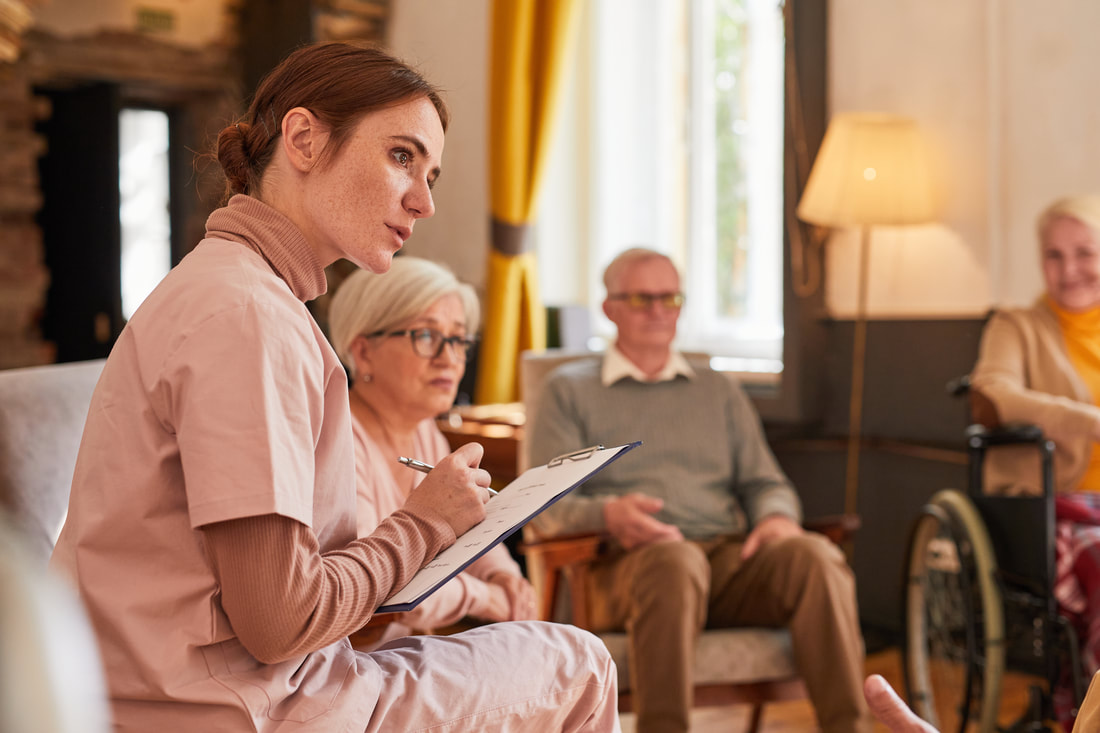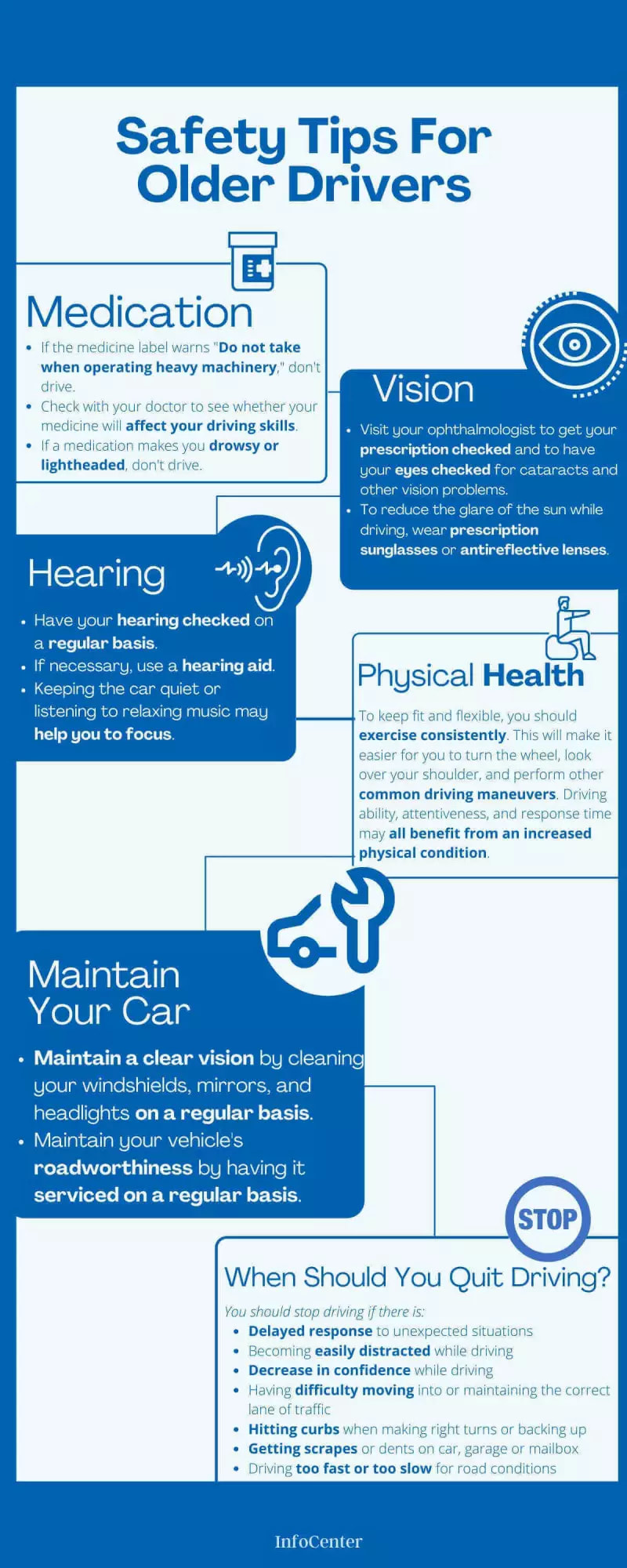|
Life's circumstances make almost everyone alone at one time or another, but being lonely is much different from being alone. Even if we enjoy time to ourselves, pursuing a quiet hobby like fly-fishing or reading, being isolated from others too much of the time can be damaging to our mental and physical health.
Emotional pain of any kind, including loneliness, can affect our body's health, sometimes contributing to chronic inflammation. It can keep us awake at night and increase our risk of dementia. Feeling cut off from others can actually make us sick! We're not powerless, however. Depending on our circumstances, we can:
Going to new groups or talking to strangers may be uncomfortable at first. Every new thing takes some practice. But the reward for the initial discomfort could be some good friends and better health! Prairie Homestead [email protected] prairiehomestead.org 1605 W. May Street Wichita KS 67213 (316) 263-8264
0 Comments
What official documents should you definitely keep in some safe place where you or, when necessary, your family member or designated executor can find them easily?
1.Durable Power of Attorney for Health Care and/or for Finances In a POA, you give another person the authority to act on your behalf in certain circumstances. Your health care provider may want you to have a medical POA on file at the medical office. 2.HIPAA Release This form must be signed before your chosen loved ones can be allowed to view your medical records or get updates from your doctors. 3.Last Will & Testament Your assets, desires and family can change throughout the years. Make sure that your will provides for your survivors in the way you currently choose. 4.Living Will This document tells others what kind of medical treatments you prefer to receive (or not receive) if you can no longer make decisions for yourself. 5.Life Insurance Policies 6.Birth Certificate/ Marriage License/ Divorce Degree 7.List of banks, safe deposit boxes, policies If you are, for any period of time, unable to give information to your loved ones, a record that you prepare in advance, listing your assets and where to find them, will be invaluable. 8.Personal items distribution Your legal Will might not go into specifics about certain sentimental items. If you wish to leave the china to your nephew or the vintage motorcycle to your granddaughter, write it down and make sure your family knows where to find the list. This could save hard feelings among people you love. Above all, discuss these documents with those who may help care for you when you can no longer handle everything yourself. When someone is hospitalized or terminally ill is not the time for family members to have to search for documents to help with care. Prairie Homestead [email protected] prairiehomestead.org 1605 W. May Street Wichita KS 67213 (316) 263-8264 Do you ever find yourself thinking about a TV program that you enjoyed years ago or a favorite movie star? Maybe you haven't read lately about a particular politician who was a world leader or a musician who used to appear on every stage. Many of the famous people from the 1940s through the 1960s have passed on, but some surprising celebrities are still alive and active.
Norman Lear is 99 years old and he isn't planning to retire, despite his long career in television and movies, social activism and doing good for others. Most people remember the ground-breaking series "All in the Family," but Lear has recently re-imagined a Cuban-American version of the old show "One Day at a Time." He's also been planning television comedies that feature senior citizens. Henry Kissinger, the former United States Secretary of State and National Security Adviser, won the Nobel Peace Prize in 1973. He's still with us, aged 99. He recently spoke at the World Economic Forum's Annual Meeting, giving his highly-informed views on the current conflict in Ukraine. Everyone knows that Bob Barker, now 98, hosted "The Price is Right" TV game show. He did it for 35 years, making it the longest-running game show ever, as well as the highest-rated. Despite some health concerns with skin cancer, Barker still actively promotes the care of animals, a vegetarian diet and physical exercise. June Lockhart, born in 1925, was acclaimed on Broadway, won multiple theater awards and went on to a successful career in television, best remembered for the 1954 series "Lassie," and 1965's "Lost in Space." Only a year ago, she was voicing a role in a Netflix series of "Lost in Space." Age brings limitations, but some of the real "stars" never stop shining. Prairie Homestead [email protected] prairiehomestead.org 1605 W. May Street Wichita KS 67213 (316) 263-8264 "Every good conversation starts with good listening." Sometimes talking to a loved one is effortless and time runs out before all of the news is shared. But at other times, conversing is difficult, with long pauses or inattention. What can we do to have great conversations with the people we love?
Give them our full attention. Put away the cell phone, don't check your watch, sit where you can see and hear well. Choose a quiet place to be together. Don't interrupt, even if someone seems to be searching for a word. Interruptions often change the subject entirely, leaving the speaker feeling unfinished or unheard. Don't jump around. Keep your topics as still as your body and mind. Jumping from one subject to another can be confusing. Important details can get lost in a tangle of subjects. Accept differences of opinion. Even people who love one another will not agree on everything. If an opinion is expressed that riles you, it's still good practice to keep listening. Everyone might learn something. You can add relevant information, but there is no need to "win" an argument. Choose interesting topics. Ask people about their past, their achievements and what they think about the present. Talk about changes during their lifetime, such as technology or manners. Share your thoughts and memories when appropriate, but encourage your loved one to do the talking. Many seniors spend a great deal of time alone or watching television. A shared conversation can be great medicine and brighten days. The memory of the conversation will enrich later hours, as well. Prairie Homestead [email protected] prairiehomestead.org 1605 W. May Street Wichita KS 67213 (316) 263-8264 Don't miss our open house! | Prairie Homestead Senior Living | Best independent living in Wichita6/22/2022 Some people make "bucket lists" of things that they want to accomplish in their lives. Others dream of all the places that they intend to travel. But in lives where travel is complicated and much has already been accomplished, people still have wish lists. What do senior adults have on their lists?
• Independence. Seniors want to do as much for themselves as possible, for as long as possible. • Activity. Modern senior adults are not just sitting in rocking chairs watching the world go by. They want to stay active to the best of their abilities, physically and mentally. Having a variety of activities is even more stimulating. • Relationships. Having lost friends and family members, and perhaps moving to a new residence, older adults still want community. Whether the friendships result from shared interests or from pursuing something new together, they want something deeper than a hello in the hallway. • Respect. No one wants to be treated like a child. There are ways to give help and encouragement without being demeaning. Even those who need the most assistance, want to be treated as if they have value. Throughout life, people have goals and desires. Though times change and circumstances vary, senior adults want just what everyone else wants: to feel cared for, useful, and appreciated. Prairie Homestead [email protected] prairiehomestead.org 1605 W. May Street Wichita KS 67213 (316) 263-8264 Our language is always changing. But some of the new words we hear on television or from younger relatives sound as if they're from another country… or planet! We might not need these new words in our daily conversations, but they can still inform or delight us.
• Amirite. Believe it or not, this foreign-looking word is just a contraction of "Am I right?" If you haven't seen it in print yet, you will see it soon. • Super-spreader is a word that came from the COVID-19 pandemic. It means an event where many people gather which could result in the spread of a contagious condition. • Air-fryer is one of the new, must-have kitchen gadgets. Convection currents are circulated by a fan to speed the cooking of food. • Dad-bod. Pretty much as it sounds, it's a description of someone slightly overweight and out-of-shape. • Sofa surfer. It used to be called a "couch potato," but still refers to anyone who sits around a lot or watches television. • To photo bomb is when someone, like your cute niece, jumps in front of a camera just as aposed picture is being snapped. Sometimes this produces a surprisingly funny shot. We're never too old to learn something new each day. Even the standard dictionaries add new words each year. Prairie Homestead [email protected] prairiehomestead.org 1605 W. May Street Wichita KS 67213 (316) 263-8264 Good news, bad news, silly news: you can find it all online these days. Social media sites like Facebook give people the opportunity to show pictures of their latest island vacation, tell about their appendectomy, or just share a joke with friends. What did we ever do before Facebook?
Read the newspaper. Very early American city newspapers had social columns, where correspondents from smaller communities could report on the latest parties or crop successes. The weight of a baby, the gifts received by bride and groom, even the details of deaths were shared. Wrote round-robins. When a stamp cost a penny or two, people wrote letters, and some used the system of a "round-robin." The first writer would share his news and send it to the next person, who would add what was happening in her life and send it on to another one. In this way, a larger group could be informed of all the news. At the end of the line, the last person sent it back to the first, and the communicating started all over again. Talked over coffee. Homemakers (primarily women) could feel isolated, so many started Coffee Klatches to share news and refreshments. At the office, workers gathered around the water cooler or in the break room to tell what was happening at home or during business hours. Listened on the phone. Beginning in 1878, subscribers to telephone service could save money by sharing a line with other households. (During the world wars, all lines were "party lines.") By listening on their home phone, people could eavesdrop on other conversations and learn things they might not otherwise know. Internet, email, cell phones, smart phones, Twitter. People communicate in new and amazing ways in each generation. Times and technology change, but the news still gets around. Prairie Homestead [email protected] prairiehomestead.org 1605 W. May Street Wichita KS 67213 (316) 263-8264 |
Archives
July 2024
Categories |
|
Prairie Homestead Senior Living
1605 W May St Wichita, KS 67213 (316) 263-8264 Senior Living in Wichita, Kansas Independent Living in Wichita, Kansas Assisted Living in Wichita, Kansas |
Follow Us Online!
|
All Rights Reserved | Site powered by Janzen Marketing LLC





 RSS Feed
RSS Feed


